Most rifle shooters fire a few shots at a target before hunting season opens, and a few more during deer season. During the remainder of the year, the rifles sit in the back corner of a closet. Formal and casual long-range target shooting, though, provide the opportunity to shoot all year in different conditions to increase skill, learn about ballistics and the mysteries of bullets in flight.

This past spring I watched a gathering of expert long-range competitors shoot at the FTW Ranch in Texas. Its 14 shooting ranges are mainly located along ridgetops, where the wind constantly blows and gains speed all day under the Texas sun. Steel plate targets range from 100 to 1,300 yards, and some are so distant a spotting scope is required to see them.
We were shooting H-S Precision Heavy Tactical or Long Range Hunter 6.5 Creedmoor rifles. Each rifle was topped with a Kahles K525i 5-25x 56mm or K318i 3.5-18x 50mm scope.
We started shooting at paper targets to make sure the rifles were sighted in to hit on aim at 100 yards. Wind and other surrounding conditions may alter the actual sight in if rifles are zeroed at longer ranges of 200 or 300 yards. The Heavy Tactical rifle I shot was paired with a Kahles K318i scope and Prime Ammunition loaded with Norma 130-grain hollowpoint boat-tail bullets. My first two shots hit dead center of the target, and the third bullet hit .5 inch higher while shooting prone with the front of the rifle supported on a Harris bipod. After those close shots, we started shooting targets at 300, 450 and then 800 yards.
In preparation for those shots, all manner of bullet, rifle and scope data was entered into Kestrel 5700 Elite weather meters with the Applied Ballistics program to create a range card showing bullet wind drift and drop at distances out to 2,000 yards or more. Muzzle velocity, drag model and ballistic coefficient, bullet weight and diameter of the Norma bullets were entered into the Kestrel. Rifle data entered included zero range, scope height above the bore, rifling twist and milliradian (MIL) units of measurement in the scope’s elevation and windage turrets.
This story is from the {{IssueName}} edition of {{MagazineName}}.
Start your 7-day Magzter GOLD free trial to access thousands of curated premium stories, and 9,000+ magazines and newspapers.
Already a subscriber ? Sign In
This story is from the {{IssueName}} edition of {{MagazineName}}.
Start your 7-day Magzter GOLD free trial to access thousands of curated premium stories, and 9,000+ magazines and newspapers.
Already a subscriber? Sign In
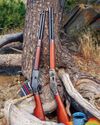
CIMARRON .32-20 Short Rifle & Carbine
In the heyday of Winchester Repeating Arms Company lever guns, it offered muskets, standard rifles, short rifles and saddle ring carbines.
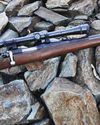
Remington's Model 722 and .222 Cartridge
It's easy enough to define what a varmint is, those pesky critters that tear up pastures, flower beds and all kinds of expensive crops people need for various reasons - most importantly, to make a living and/or something with which to feed themselves.

Coyote Bullets
What is Best for You?
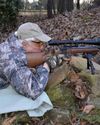
Remington's 5mm Rimfire Magnum
Shooting a Classic
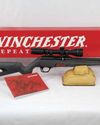
Winchester's New Wildcat
The Ultralight Rimfire Varmint Rifle
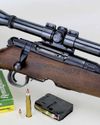
.223 Remington from .30-30 Winchester?
Multitasking for Varmints

LOADS FOR A .22 TCM
The .22 TCM first appeared commercially in 2012, chambered in a Rock Island Armory 1911-style handgun.
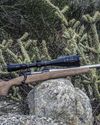
Everybody Loves Velocity
The 4,500-fps WSSM Project
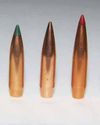
A BOLT-ACTION FRANCHI 224 VALKYRIE
Testing New Loads
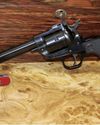
.22 Winchester Magnum Rimfire
Shooting Revolvers